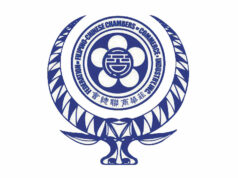BSP hikes rates as inflation heats up
By Melissa Luz T. Lopez
Senior Reporter
THE Bangko Sentral ng Pilipinas (BSP) raised its key rates yesterday, marking its first tightening move in nearly four years at a time of five-year highs for inflation and robust economic growth.
The Monetary Board raised its borrowing costs by 25 basis points (bp) during their third review for the year. Rates now stand at 3.75% for the overnight lending rate, 3.25% for the overnight reverse repurchase rate, and 2.75% for the overnight deposit rate.
“In deciding to raise the policy interest rate, the Monetary Board noted that latest forecasts have further shifted higher, indicating that inflation pressures could become more broad-based over the policy horizon,” BSP Governor Nestor A. Espenilla, Jr. said at yesterday’s briefing.
Mr. Espenilla added that the “timely” increase in benchmark yields “will help arrest” possible second-round effects, as it would temper inflation expectations.
“We continue to see elevated risks and basically, the Monetary Board decided that the time to act is now. Our own expectation is by acting right now — in our view, a timely manner — we will avoid the necessity of further strong action down the road,” the BSP chief added.
The BSP last hiked policy rates in September 2014 when inflation was trending above the 3-5% target for that year.
The central bank’s decision satisfied mounting calls for a rate hike. Last week’s BusinessWorld poll showed nine of 11 economists expecting higher rates at this week’s meeting. Analysts have said an increase is long overdue, noting that the BSP is behind the curve at a time of accelerating inflation and rising global yields.
Multilateral lenders and credit raters have also been flagging overheating risks in the Philippines, given double-digit bank lending growth and a widening trade deficit.
Prices of widely used goods hit a fresh peak in April as headline inflation came in at 4.5%, accelerating from March’s 4.3% and 3.2% a year ago. This pushed the year-to-date average to 4.1%, above the government’s 2-4% target range for 2018.
Mr. Espenilla previously acknowledged that inflation may have “spread somewhat” to cover more goods. He earlier said the economy’s growth momentum is robust enough to accommodate higher interest rates.
SUPPORT TO GROWTH
“Growth will continue to be very robust… A 25bp [hike] is not expected to derail the government’s target of achieving a growth rate of 7-8%,” BSP Deputy Governor Diwa C. Guinigundo told reporters yesterday.
Thursday also saw the Philippine Statistics Authority report that the domestic economy expanded by 6.8% in the first quarter, matching market expectations and cementing the country’s claim as one of the fastest-growing in the region.
Raising policy rates is expected to rein in inflation but also push up market rates including interest spreads on consumer loans and mortgages. Bank lending grew 18.3% in March, posting the slowest pace in a year.
Socioeconomic Planning Secretary Ernesto M. Pernia blamed inflation as a “spoiler” to first-quarter growth, saying that economic expansion could have printed above 7% if not for higher commodity prices.
The BSP’s decision to raise rates came as the BSP expects inflation to further pick up steam and overshoot the 2-4% target band this year.
Mr. Guinigundo said the central bank now sees 2018 inflation averaging 4.6%, versus the 3.9% forecast given last March. Price increases are expected to ease next year to average 3.4%, back within the government’s target although higher than the previous 3% estimate.
The price spike came on the back of rising world crude prices as well as the cost of rice. Expectations of lower oil prices by next year will also temper overall inflation, the BSP official added. Tempered inflation expectations among market watchers will also temper price dynamics.
ENOUGH FOR NOW
Central bank officials see the 25bp increase as an appropriate response to faster inflation, although market economists still expect additional tightening moves in the coming months.
“In terms of moving again the interest rate, I think at this point…the 25bp increase, I think, is sufficient to keep the inflation reading at 3.4% for 2019. In short, we’re back to target-consistent path,” Mr. Guinigundo said.
For his part, Mr. Espenilla said the BSP is ready “to undertake further policy action as necessary” to keep prices stable.
The BSP chief also noted that the rate hike will provide support to the peso, which has been the worst-performing currency in the region in recent months.
Bank analysts however said they expect additional policy tweaks within the year. Nomura sees two more rate increases by June and August, while IHS Markit is pencilling in at least one more hike in the coming months.
The BSP will hold its next rate-setting meeting on June 21.



